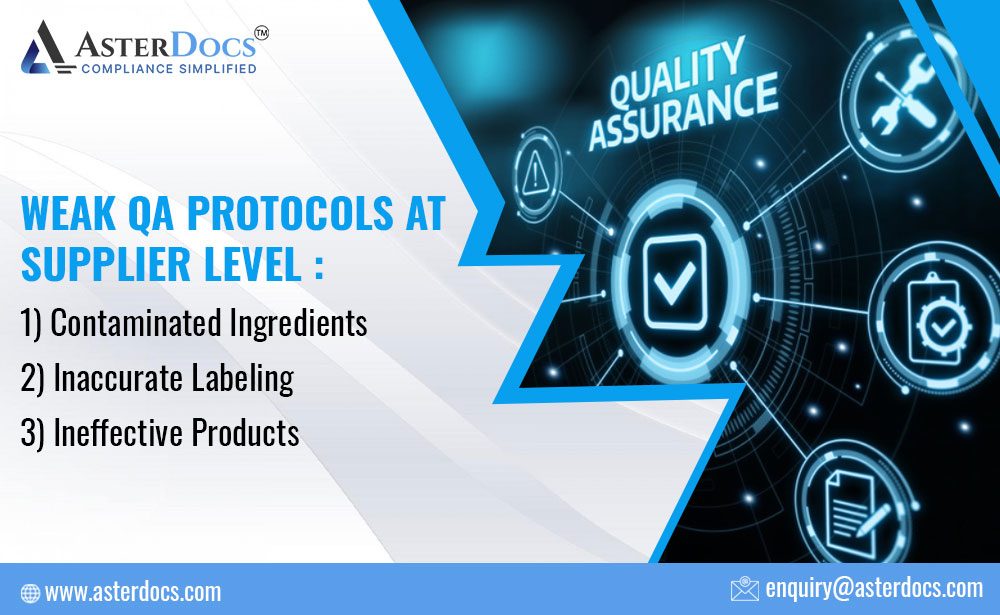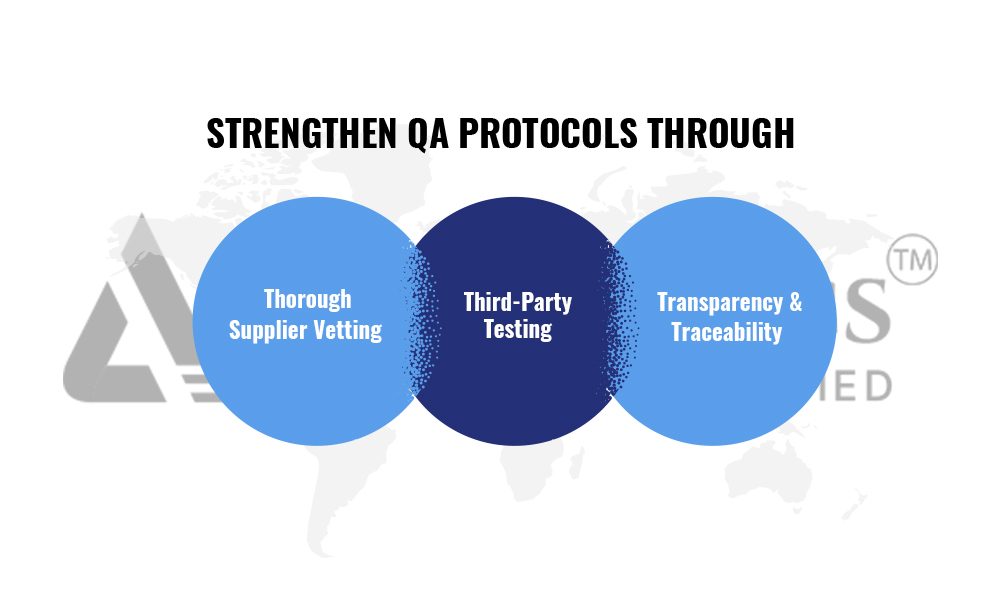The nutraceutical industry thrives on the promise of natural, health-enhancing products. However, this promise hinges on one crucial factor: safety. Weak Quality Assurance (QA) protocols at the supplier level can introduce significant risks, jeopardizing consumer health and brand trust. This blog post explores the potential consequences of inadequate QA for nutraceutical ingredients. It highlights the importance of robust supplier vetting procedures.
Contaminated Ingredients and Recalls
Imagine a scenario where contaminated ingredients from a supplier slip through the cracks. This can have severe consequences:
- Product Recalls: Contaminated ingredients can lead to product recalls, a costly and reputation-damaging exercise for companies.
- Consumer Harm: Consumers unknowingly ingesting contaminated products can suffer adverse health effects, eroding trust in the brand and the entire nutraceutical industry.
- Regulatory Scrutiny: Regulatory bodies can impose heavy fines and production halts on companies with a history of contamination incidents.
Inaccurate Labeling and Health Risks
Consumers rely on product labels to make informed decisions. Inaccurate labeling due to weak QA at the supplier level can have profound implications:
- Incorrect Potency: Products with inaccurate potency levels may under-deliver on promised benefits or, worse, pose health risks due to excessive dosages.
- Missing Allergen Information: Failure to disclose allergens can lead to severe allergic reactions in consumers.
- Misleading Claims: Inconsistent ingredient quality can make it impossible to guarantee product effectiveness, undermining consumer trust and brand credibility.
Ineffective Products and Lost Trust
Weak QA can lead to inconsistency in the quality of nutraceutical ingredients, impacting product efficacy:
- Variable Effectiveness: Products with fluctuating ingredient quality may not deliver the promised health benefits, leaving consumers disappointed and questioning the industry’s legitimacy.
- Wasted Resources: Consumers spending money on ineffective products can lead to frustration and brand loyalty erosion.
Strengthening QA Protocols
The key to ensuring nutraceutical safety is robust QA protocols throughout the supply chain. Here are some steps companies can take:
- Thorough Supplier Vetting: Implement a rigorous supplier qualification process, including in-depth QA procedures and audits.
- Third-Party Testing: Invest in independent testing of ingredients and finished products to verify quality and consistency.
- Transparency and Traceability: Maintain clear documentation and traceability systems to track ingredients from source to finished product.
By prioritizing strong Quality Assurance protocols, nutraceutical companies can ensure the safety and efficacy of their products, build consumer trust, and foster a healthy industry. Remember, investing in quality today safeguards your brand reputation and paves the way for long-term success.














